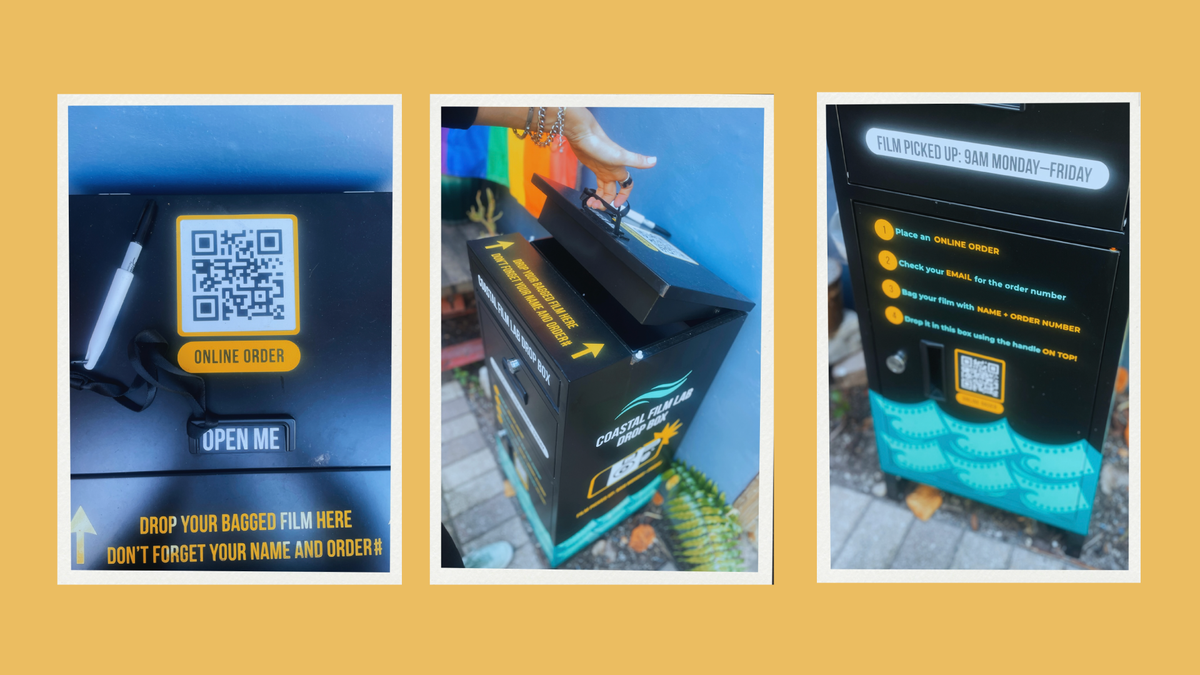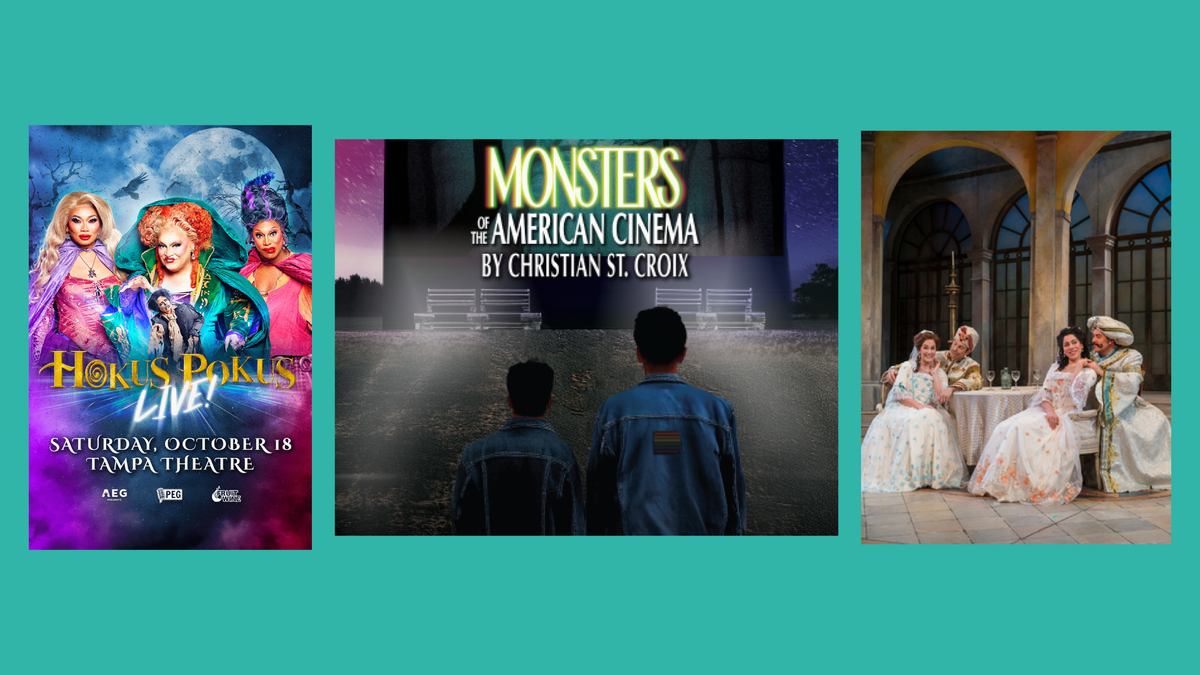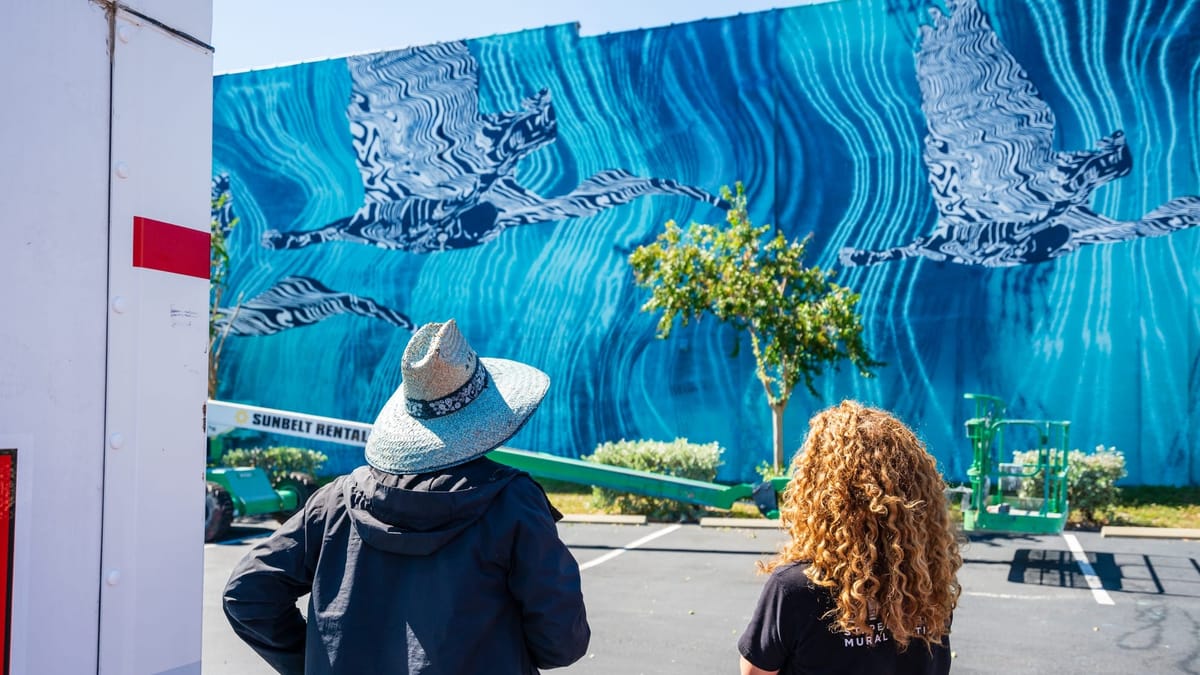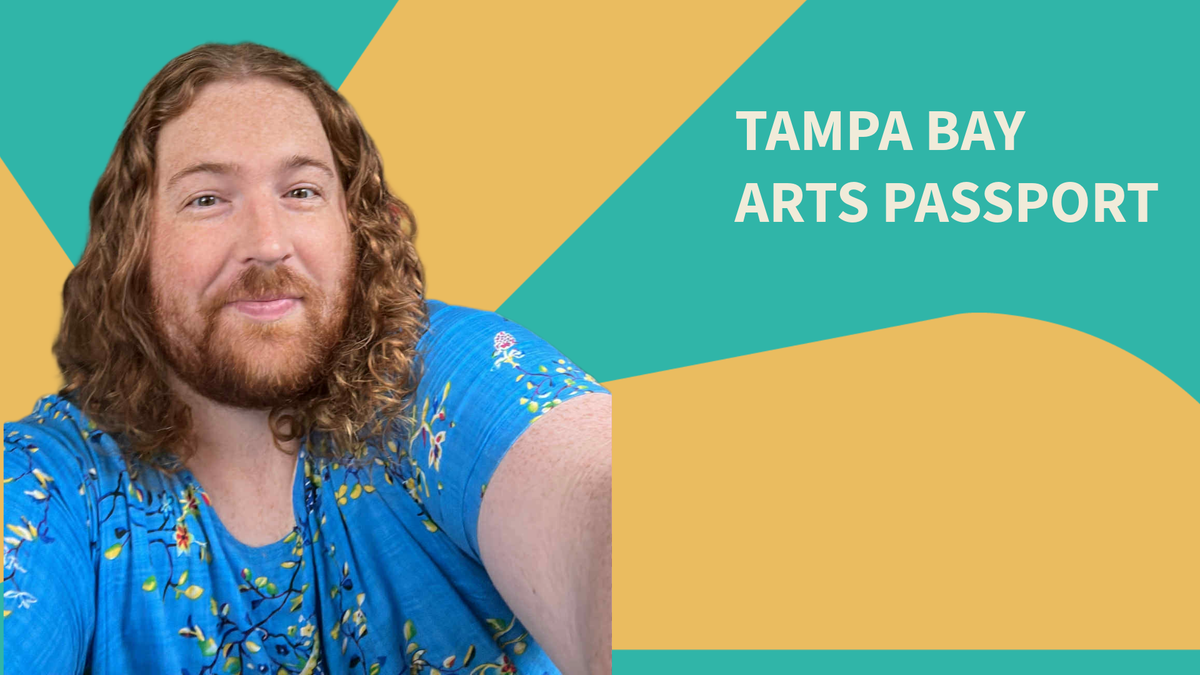Bridge in a Box

Coastal Film Lab’s new Dropbox might be a place to stop, drop, and process your next roll—but it could also be a reminder that creative impulse, with persistence and structure, can grow into something real.
By Mo Houston
I may have romanticized the new Dropbox just outside St. Pete’s most nostalgic coffee shop, Black Crow. The compact black tin stands upright with a scan code and a turnaround time for film processing, but to me, it’s a portal between worlds. On one side of the Bay is where coffee drinkers gather to socialize, connect, and create. On the other side is where negatives are bathed, scanned, and developed into something tangible. A bridge, really, between the creative flow of St. Pete and the entrepreneurial grind of Tampa.
However, Coastal Film Lab owner Stephen Zane assures me that the new addition really is, “one of the least interesting things we’ve got going on.” Which might sound dismissive, but it’s actually energizing. The man has big plans, and as the world grows pixel by pixel, he’s not afraid to take up space with big ideas. The beginning was smaller, created in survival.
“I was broke,” Zane adds flatly, leaning against the counter. “The pandemic hit, photo shoots disappeared overnight, and I had to figure out something fast. So I started developing film out of my kitchen. People would just drop rolls in my mailbox. No contact, just envelopes. That’s literally how Coastal began.”
He laughs at the memory, but it’s not nostalgia—it’s recognition of how close things came to ending before they began. “I thought my savings would last a few months. They lasted one. Then I maxed out thirty, forty grand in credit cards. That’s the point where you either fold, or you get very, very focused.”
I ask if it felt like a gamble.
“Not a gamble,” he says. “More like the house was on fire. You don’t think—you run. I knew if I didn’t make this work, I was sunk. So I made it work.”
Zane and I are chatting at the front of his store on 1704 N Nebraska Avenue, just off 7th Street in Ybor City. From here, he’s built a space that feels equal parts workshop and community hub—open processors whirring, scanners glowing, massive displays beaming with freshly digitized frames.
I thought we’d be talking about film—the precision of photography against the looseness of creative expression, the nuances that shape Tampa and St. Pete. Instead, our conversation turned to what it means to build a business creatively. There is no rule book; it’s alive, unpredictable, and demands risk. And when you want someone to believe in what you’re doing, Zane says, it isn’t facts that win them over. “Communicating your enthusiasm for the things you’re working on is a much better frame than approval seeking.”
From those nights in a kitchen darkroom, Coastal Film Lab has grown into a buzzing open space in Ybor, processing hundreds of thousands of frames a year. And now, with a sleek black tin outside a coffee shop in St. Pete—equal parts utility and statement—Zane is testing how far his vision can travel across the Bay.
The box is playful—it lightens the load for people who just want to drop a roll and keep moving. No bridge traffic, no mailing labels, no hassle. Just a quick stop before your morning coffee, and for about twenty bucks a roll, your negatives are developed, scanned, and your files are sent back to you in roughly seven business days—or faster if you pay for the rush.
But the real rush comes later, when people get to see their photos—moments they felt compelled to capture—turned tangible. And those photos are being taken by everyone now, not just art students.
“Honestly, it’s everybody now,” Zane tells me. “When I first started, I thought it would just be art kids. But we see college students, families, people who’ve never touched a darkroom—hell, even frat bros. Film’s gone mainstream. I’ll take anyone. If you’re excited to shoot, we’re excited to help.”
Inside Coastal, the hum is constant—keys tapping, it’s busy, vibrant, alive. A dozen people sit in front of glowing screens, going frame by frame, absorbed in the images rolling across them. It’s a different kind of artistry, one that matches the joy of the person behind the lens. The photographer might work alone in the field, but the film’s second life happens here—in community, in rhythm, in the buzz of a shared method.
The dropbox, then, isn’t just about convenience for St. Pete. It’s a doorway into that community—an invisible relay between one person’s impulse to take a photo and the collective energy of those who make it happen.
It seems that when it comes to doing something you love—whether it’s building a business or taking a photo—following what feels best is what actually gets you where you’re going. Zane didn’t start a business to make money; he built a platform for growth, and through practice, commitment, and consistency, created an atmosphere people wanted to be part of. “Communicating your enthusiasm for the things you’re working on is a much better frame than approval seeking,” he tells me.
And photography works the same way. You don’t begin with processing, scanning, or color grading—those come later, with critique, opinion, and method. You begin by taking a photo of something you want to remember. Sometimes—when we’re lucky—that picture stays in our head, and we start building our life, our choices, and our endeavors all around it.
What’s next for Coastal? Zane talks about vending machines stocked with disposables, expanding dropboxes to new cities, and even offering Super 8 motion picture processing—the kind of analog adventure Florida doesn’t yet have. Long term, he envisions a larger community space: part lab, part gallery, part classroom. If the Dropbox outside Black Crow is just a playful first step, the next chapters are about building not only a business, but a home for photography itself.






